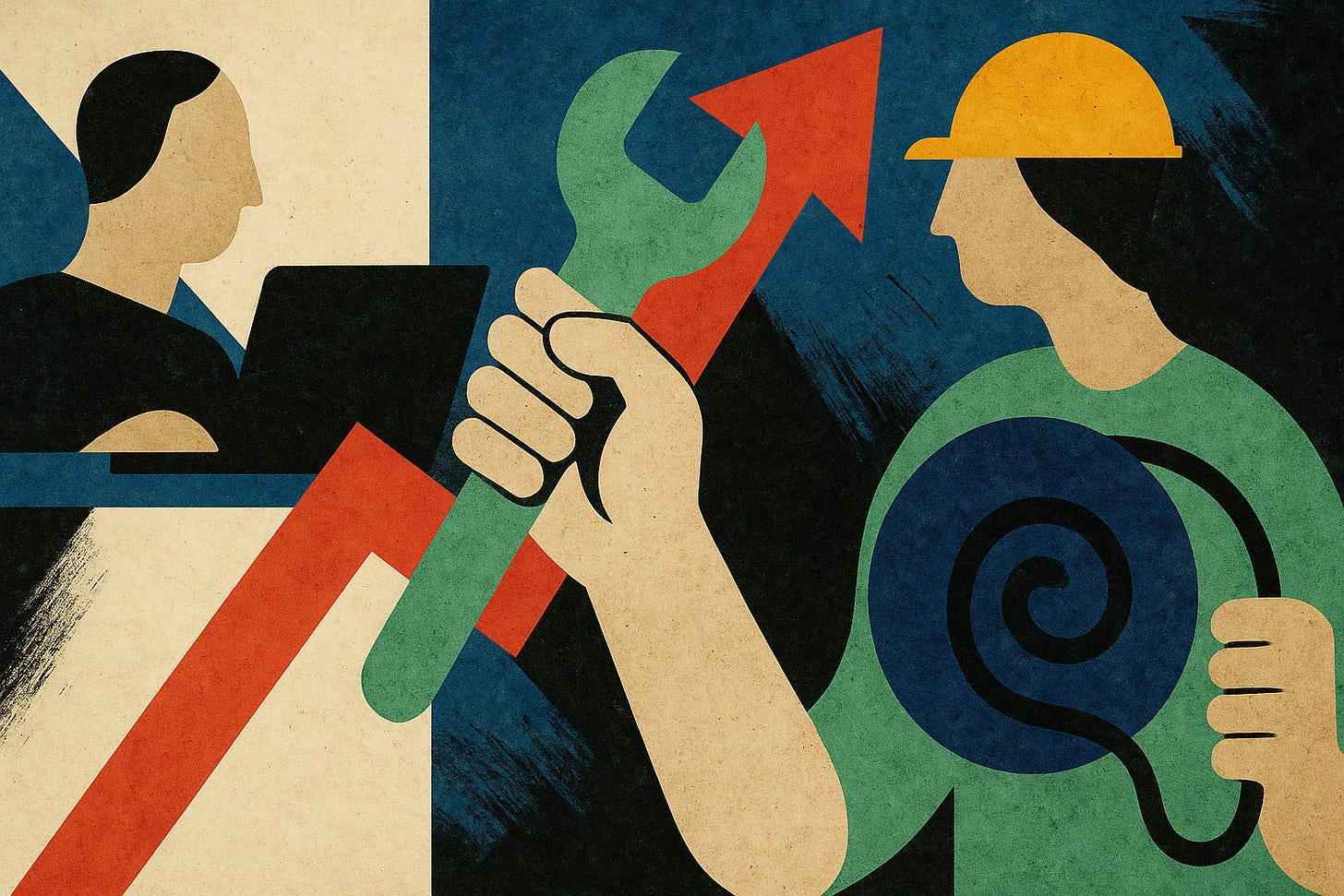Business Schools Are Teaching the Wrong Jobs
Higher ed built its empire on knowledge. AI just made that cheap.
AI is gutting the knowledge economy—and business schools should be sweating bullets.
Sam Altman predicts the price of computer-based work (coding, writing, designing, analysing, advising etc) will collapse faster than physical work. That’s the opposite of what we all thought. And if you’re a business school, it’s terrible news.
Think about the careers business schools proudly funnel students into: consulting, finance, marketing, analytics, strategy. All laptop-and-latte jobs. All prime AI targets. A bot doesn’t need McKinsey hours or a marketing minor to generate a SWOT analysis or write a media plan. The “smart” jobs that B-schools once used to justify insane tuition are quickly being devalued—not just in pay, but in prestige.
Meanwhile, jobs AI can’t do—logistics, manufacturing ops, supply chain boots-on-ground, managing field teams, making customers happy—are becoming more valuable. But business schools don’t glamorize those. Too blue collar. Not enough buzzwords.
Here’s the twist: as AI crushes the knowledge premium, the $60K-per-year knowledge dispensers (hello, MBA programs) have to confront their own existential threat. Why pay that much to compete with GPT-6?
The schools that survive won’t just teach frameworks. Believe me. They’ll build people who can do things—sell, lead, manage humans, make stuff work in messy reality. Presence will matter more than PowerPoint.
Business education needs to stop worshipping slide decks and start training people for jobs AI can’t touch. Because the real flex in the age of AI is being irreplaceably human.
So what should business schools do now?
They need to ditch the simulation sandbox and throw students into the real world. Not more “group work” on Google Slides. I mean actual constraints. Do things manually. Experience tension. Touch stuff. Feel friction. Get outside the building. Talk to people who aren’t your classmates. Pitch to someone who doesn’t care about your grade and will call BS when they smell it.
That’s what I do in class. No AI hacks, no academic padding—just students building things that might break, trying ideas that might flop, presenting to professionals who don’t give participation trophies. Real-world stakes. Real feedback from real professionals outside the walls of the castle. Not the kind that comes from professors angling for 4.8 stars on their evals by acting like overpaid camp counselors.
Because in a world where machines handle the clean, tidy work, the mess is where humans matter. Business education has to stop polishing spreadsheets and start developing grit, judgment, and creativity under fire.
Otherwise, B-schools won’t be disrupted by AI. They’ll die of irrelevance.


